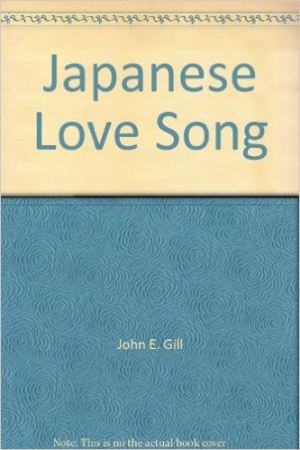
Japanese Love Song
Japanese Love Song is a timely book filled with military insider knowledge but a love song it is not. The lives led by people in the military and those connected to them are at times plain wretched. But because we are once again in an uneasy war this book will garner interest.
The author served as a Marine Corps officer so he is very familiar with military life. Readers who have served in the military will have no problem understanding the jargon used throughout. However the use of unexplained military terms and acronyms puts civilian at a disadvantage.
Japanese Love Song follows the fortunes of men stationed in Asia in 1965. Willard Iris Robert Gillespie and Evans Norris are facing frustrations in military life and the complications of separation from their families. For Iris and Gillespie the unhappiness of their marriages is only exacerbated by overseas service. The ambitious Iris who wants to ascend the ranks but continually gets in his own way is jealous of Norris. Norris who has a reputation for being a man about town meets his match when he falls for Charlotte a woman who isn’t what she seems.
The book’s format includes the text of New York Times reports. Character back story is given through italicized text labeled as “Today’s Profile.” The author does a good job of providing character motivation but the use of the profile technique makes the reading experience seem disjointed.
The women want attention and affection but struggle when their men are unavailable. The wives of Iris and Gillespie feel unfulfilled and are tired of the way military life divides families. Shirley Iris’ overseas girlfriend is also frustrated with having to share the military men she dates with wives at home local prostitutes and the men’s own ambition. Japanese Love Song shows how the presence of the U.S. military effects the local population specifically the women. Sex is a commodity and an industry. For women with few options prostitution earns them a living.
The book works by picks up different threads—sometimes this succeeds and sometimes it does not effectively cast the reader from one character or one topic to another. Perhaps this book would be better if it were presented as short stories or interrelated vignettes.
Disclosure: This article is not an endorsement, but a review. The publisher of this book provided free copies of the book and paid a small fee to have their book reviewed by a professional reviewer. Foreword Reviews and Clarion Reviews make no guarantee that the publisher will receive a positive review. Foreword Magazine, Inc. is disclosing this in accordance with the Federal Trade Commission’s 16 CFR, Part 255.
